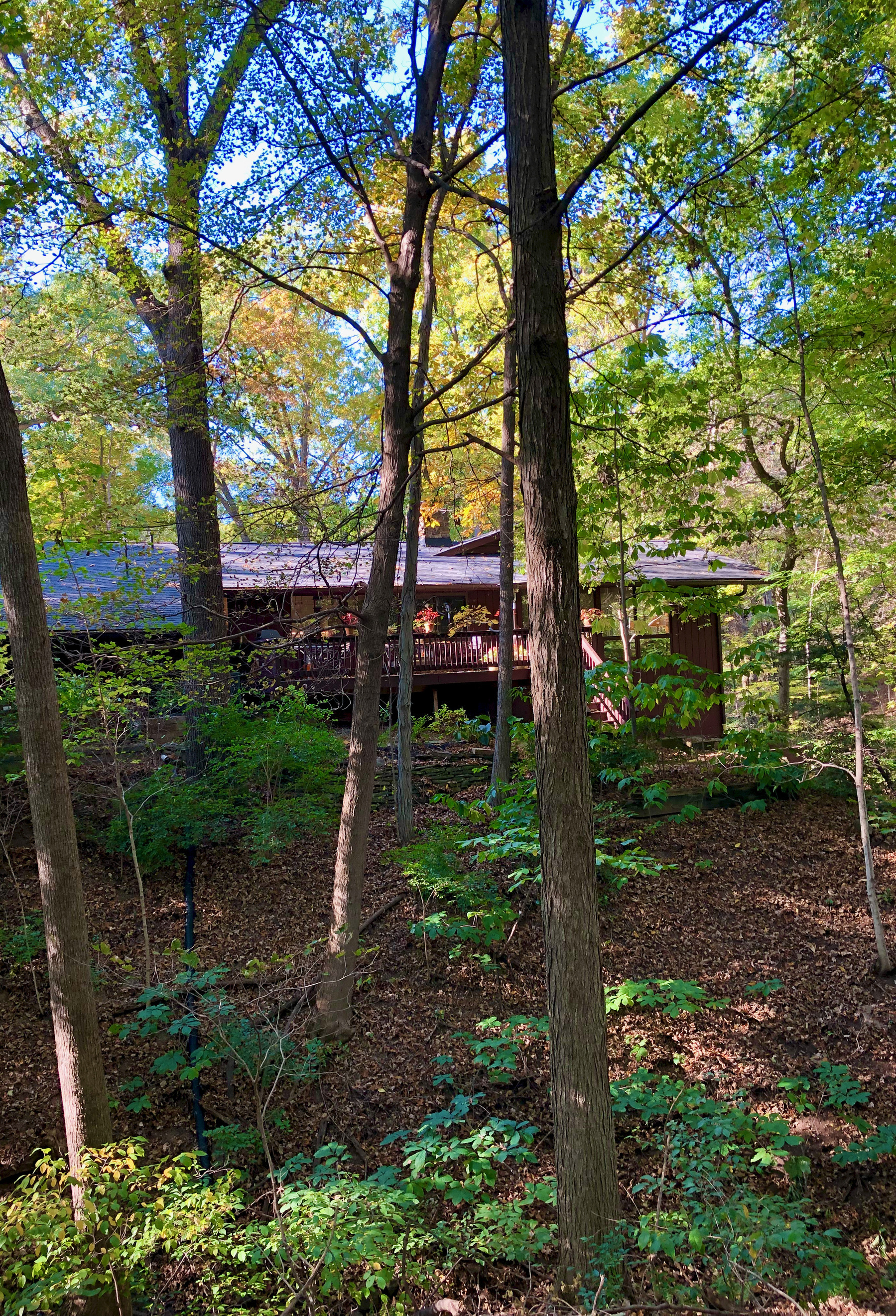25 October 2021
Kamál, 11 ‘Ilm (Knowledge), 178 B.E.
Seen
The leaves are slow to turn color this year …

This home is certainly well-situated for its residents to witness the fall changes, be they as they are!
Done
Started reformatting posts to “Daily Log” on this site—another fun activity—NOT!
Noted
Astral Prospecting on Instagram: Sauger (Sander canadensis)

Does it meet the 16” minimum in length to qualify for Fish Ohio Recognition Program sponsored by the Ohio Department of Natural Resources? Only the Astral Prospector knows for sure!
Quoted
This book is not just a critical reexamination of the origins and evolution of Islam, nor is it merely an account of the current struggle among Muslims to define the future of this magnificent yet misunderstood faith. This book is, above all else, an argument for reform. There are those who will call it apostasy, but that is not troubling. No one speaks for God—not even the prophets (who speak about God). There are those who will call it apology, but that is hardly a bad thing. An apology is a defense, and there is no higher calling than to defend one’s faith, especially from ignorance and hate, and thus to help shape the story of that faith, a story which, in this case, began fourteen centuries ago, at the end of the sixth century C.E., in the sacred city of Mecca, the land that gave birth to Muhammad bin Abdallah bin Abdal-Muttalib: the Prophet and Messenger of God. May peace and blessings be upon him. 1
Ever since the publication of this book, a number of people—both Muslim and non-Muslim—have taken issue with my characterization of the current conflict within Islam as signaling a period of reformation. This is understandable, considering that the term reformation has certain unavoidable Christian and European connotations that may not be applicable to the Arab and Muslim world, Some reject the term because it seems to imply an inherent flaw in Islam that requires “reforming.” Others view it as overly optimistic, perceiving the surge in jihadism as an indication of the devolution, rather than evolution, of Islam.
But I use reformation deliberately, not only to emphasize that the violence and bloodshed we are witnessing in large parts of the Islamic world are chiefly the result of an internal struggle between Muslims (rather than of a war between Islam and the West), but also to stress that the current conflicts within Islam are those with which all great religions grapple as they face the challenges of modernity. And while there is no question that certain parallels between the Christian and Islamic reformations can seem strained, there are some similarities that cannot and should not be dismissed. Because they reflect universal conflicts in all religious traditions. Chief among these is the conflict over who has the authority to define faith: the individual or the institution. 2
My sister and brother-in-law recently relocated and chose to donate several books in their library rather than move them. Many of these volumes are not well-known, but due to the topics they cover and the manner in which their authors explore them, they warrant a nod of recognition before being sent on their way. Accordingly, most quotes referenced in the “Quoted” section come from these books. Maybe they will stir (or renew) your interest, too.